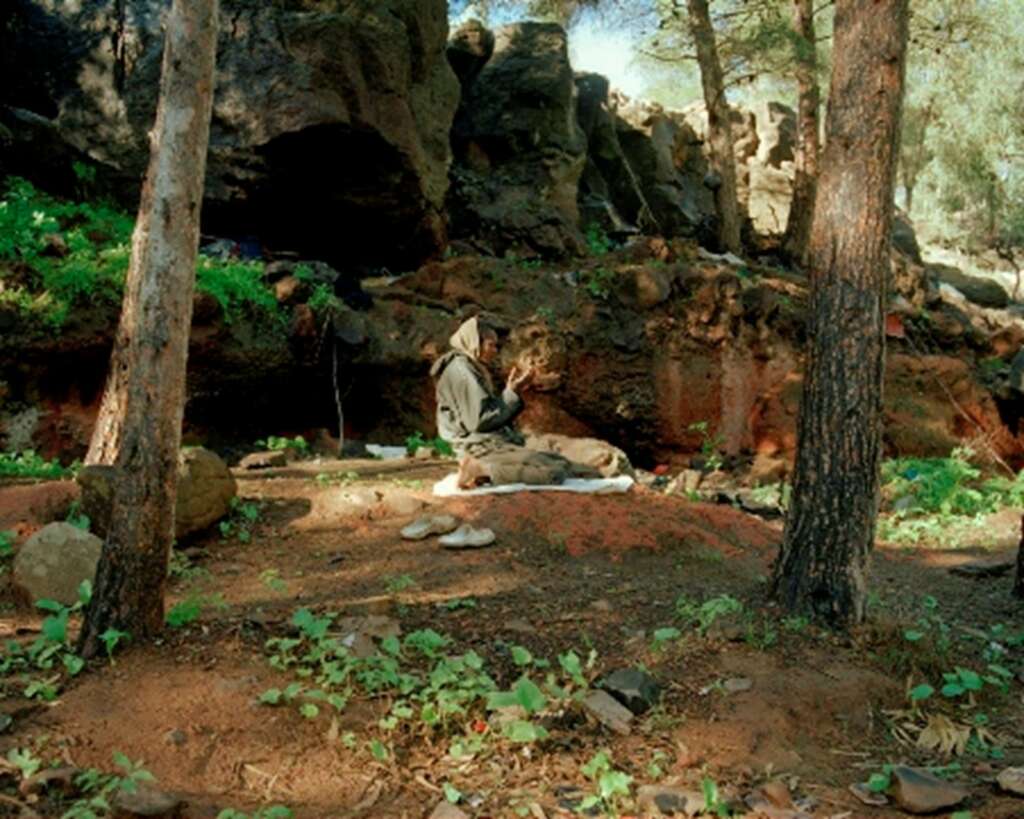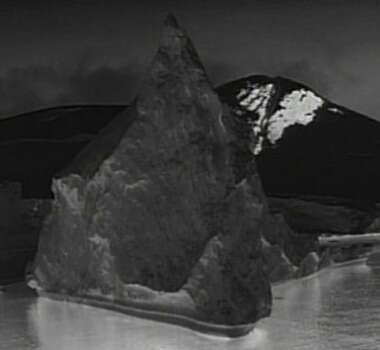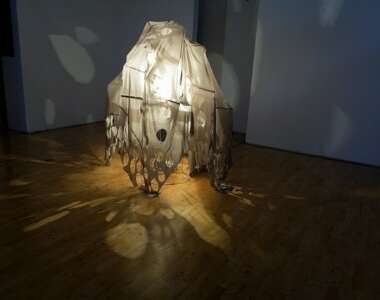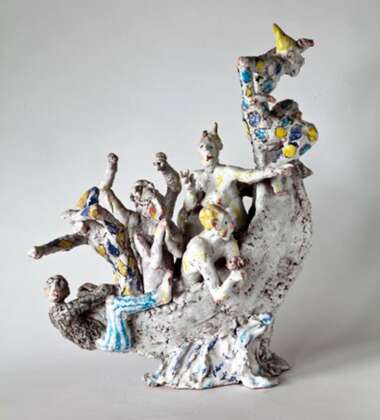Citizen is a new exhibition and installation by artist Anthony Haughey. The exhibition is a cross-border collaboration with Millennium Court Arts Centre, Portadown and Highlanes Gallery, Drogheda.
The border in Ireland has been historically marked with signs of conflict and sectarian division (the subject of the artist’s earlier work, Disputed Territory (2006). It has been documented and defined culturally in literature, art and filmic representations. Yet it is easy to forget that the border is also an international boundary. There are no fences or passport control; a more subtle and pervasive form of surveillance is used instead. For migrants, the border is part of ‘Fortress Europe’ where they are subjected to the vagaries of European immigration policies.
Borders and transnational migration has been a major theme of Haughey’s art practice for more than twenty-years. Although his work has encompassed a wide range of subjects, he has continually returned to this on-going investigation of what Saskia Sassen describes as ‘informal citizenship’, where migrants contest the right to move freely across borders in search of a better life. The movement of people across continents, seas and oceans is no longer fixed to a specific sense of place; migrants exist in-between states, attempting to negotiate citizenship with reluctant hosts. Despite the current economic crisis, migration is a global phenomenon that is here to stay.
Haughey has worked collaboratively with individuals and groups who have left their countries of origin in the most urgent of times, many are living in temporary Reception Centre’s such as Mosney, near Drogheda for more than seven-years. Others are living on the periphery of European cities, near harbours in derelict buildings and squatter camps, and in forests behind six-metre high razor wire fences in North Africa waiting for an opportunity to enter ‘El Dorado’, the Spanish enclaves of Cueta and Melilla. Migrants are variously described by as refugees, asylum seekers, illegal aliens and sans papiers, stateless figures relegated to new spaces described by Giorgio Agamben as ‘camps’ or non-spaces located within state boundaries, and yet outside. The camp is a ‘space of exception’ within and without national space, where rights afforded to citizens of the state are suspended.
Through a series of long-term encounters, and in many cases close personal relationships Haughey and a growing collective of migrants from all over the world have collaborated to produce video installations, photographs, texts and performances. These transformative actions set out to dispel myths and reductive stereotyping surrounding transnational migration. Instead, migrants reclaim their agency and participate as active ‘informal citizens’.
Bio: Anthony Haughey is an artist and a lecturer in the Dublin Institute of Technology, where he supervises doctoral practice-based projects. He was a Research Fellow (2005-8) at the Interface Centre for Research in Art, Technologies and Design at the University of Ulster Belfast, where he completed a PhD in 2009. His art practice works from the premise of a principal situatedness of art in place and community and its connectedness through dialogic exchange. His work has been widely exhibited internationally, most recently in Belfast Exposed, where he was nominated for the Deutsche Borse prize, Künstlerhaus S11, Solothurn, Switzerland, Helsinki Photography Biennial, the Copper House Gallery Dublin, New York Photography Festival and the Korea Foundation in Seoul. Monographs include The Edge of Europe (1996), Disputed Territory (2006) and an artist’s book, State (2011) with German artist Susanne Bosch. His work is represented in many international public and private art collections. He has published several chapter contributions including, (2010)Dislocations: Participatory Media with Refugees in Ireland and Malta, in Goodnow, K and Skartveit, H L. (eds) Changes in Museum Practice New Media and Refugees: Forms and Issues of Participation, Berghahn and (2007) Imaging the Unimaginable, in Grossman, A. and O’Brien, A. (eds) Projecting Migration, Transcultural Documentary Practice, London: Wallflower Press. Haughey is currently researching a project, for the centenary of the Dublin 1913 Lockout and editing a publication, Art, Media and Contested Space





